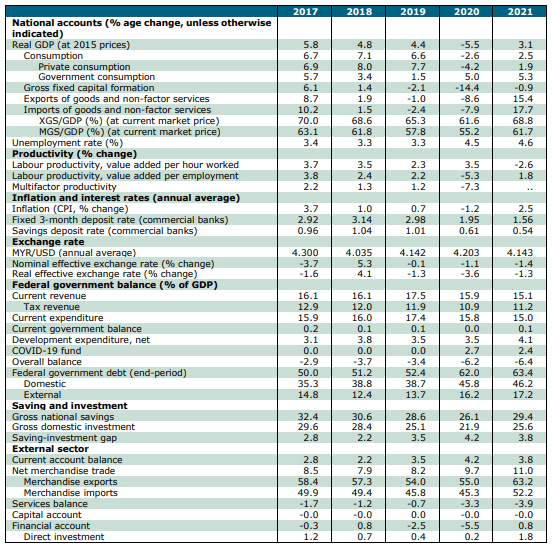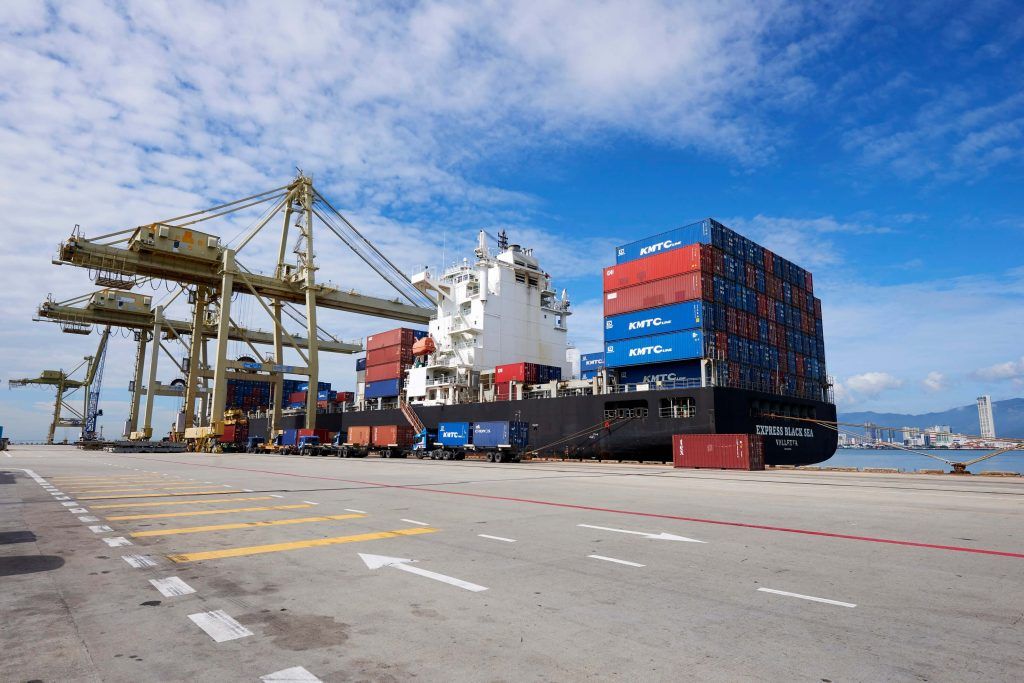Malaysia is part of the ASEAN Regional Comprehensive Economic Partnership (RCEP) Agreement, which broadens and deepens collaboration between ASEAN member states and five of its Free Trade Agreement (FTA) partners, notes the World Trade Organization (WTO).
This agreement entered into force for most participants on January 1, 2022.
In addition, Malaysia was one of the 11 countries that signed the Trans-Pacific Partnership Comprehensive and Progressive Agreement (CPTPP) in 2018.
Malaysia was the ninth signatory to ratify TIPAT, and the Treaty entered into force for the country on November 29, 2022.
Selected macroeconomic indicators, 2017-21

The RCEP Agreement broadens and deepens collaboration between the 10 ASEAN member states and five of their LAC partners (Australia, China, Republic of Korea, Japan, and New Zealand).
The 20 chapters of the RCEP Agreement cover areas not covered in ASEAN’s FTAs with its partners, such as government procurement.
In general, the main elements of the chapter on trade in goods (Chapter 2) include the reduction and elimination of customs duties, duty-free temporary admission, the general elimination of quantitative restrictions and the improvement of transparency in the application of non-tariff measures, import licensing procedures, and duties and formalities.
RCEP
The provisions on reasonableness, objectivity and impartiality of domestic regulation in the chapter on trade in services (Chapter 8) also go beyond the existing FTAs.
The general elimination of restrictive and discriminatory measures is combined with a negative list approach to the scheduling of services commitments.
Specific annexes on financial services, telecommunications services and professional services provide for the further liberalization of these sectors.
In particular, Chapter 9 of the RCEP Agreement aims to facilitate the entry and temporary stay of natural persons engaged in trade in goods or services or investment activities.
The investment chapter, which is based on four pillars (protection, liberalization, promotion and facilitation), also addresses investor services – for example, assistance in resolving claims and complaints – and establishes a work program on investor-state dispute settlement provisions.
Electronic commerce
Provisions relating to intellectual property rights go beyond the WTO TRIPS Agreement, in particular with respect to technological protection measures and enforcement in a digital environment, and provide for the application of appropriate criminal procedures and penalties for unauthorized commercial-scale copying of cinematographic works.
Procedures for the establishment of certain intellectual property rights have been harmonized and simplified, for example, with respect to the electronic filing of applications and the online availability of relevant information.
With regard to electronic commerce, the parties have agreed to adopt or maintain a legal framework that constitutes an enabling environment for electronic commerce, including the protection of consumer rights and user information.
Data-related issues, such as the location of computer facilities and the cross-border transfer of information by electronic means, are also addressed.
Other areas specifically covered in the RCEP Agreement include customs procedures and trade facilitation, rules of origin, TBT and SPS issues, trade remedies, competition policy, SMEs, government procurement, and economic and technical cooperation.
For Malaysia, participation in the RCEP mainly involved the revision of its intellectual property laws governing patents, copyright and geographical indications.
The RCEP Agreement entered into force for Malaysia on March 18, 2022.
CPTPP
This agreement is a separate treaty that incorporates, by reference, the provisions of the initial Trans-Pacific Partnership Agreement (TPP).
Certain provisions of the TPP remain suspended until CPTPP partners agree, by consensus, to remove their reservations.
Malaysia was one of the 11 countries that signed CPTPP in March 2018, and has concluded bilateral arrangements (side letters) with some partners in the context of CPTPP.
Malaysia submitted its instrument of ratification to New Zealand (CPTPP depositary) on September 30, 2022.

